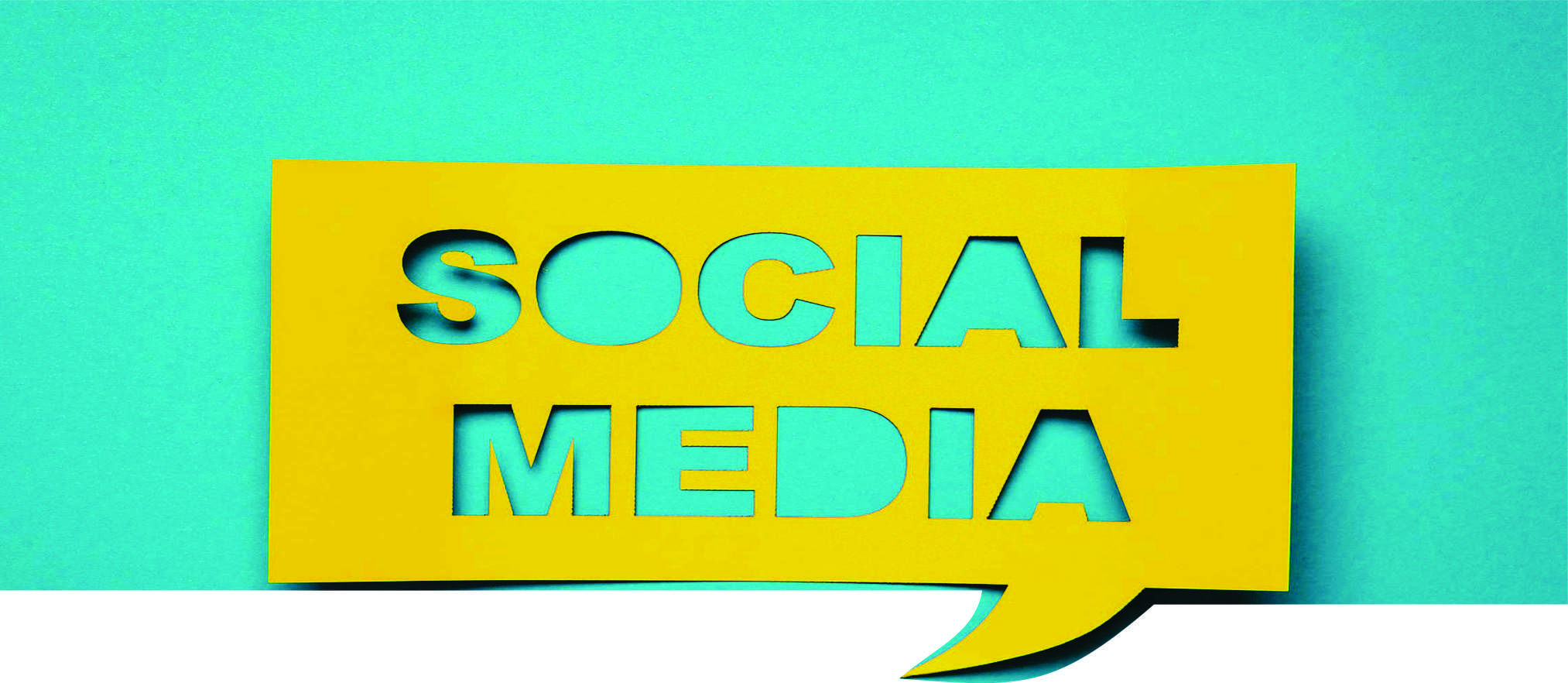How much time does a user spend on social media?
Since there has been no seminal work in this regard in Pakistan, therefore, we have to rely on data made available from different sources to find out the duration as correct as possible.
- According to a report titled as “Digital 2020: Global Digital Overview,” the state of affairs regarding use of six major social media (SM) platforms was: Facebook 15 minutes (hereinafter min) 02 seconds (hereinafter sec); WhatsApp 2 min 47 sec; YouTube 29 min 59 sec; Twitter 13 min 36 sec; Instagram 10 min 44 sec; and Wikipedia 4 min 34 sec. In total, a user spent 76 min 42 sec per visit on these websites. If we use this collective time of 76 min 42 sec per day as a criterion, we find that Pakistani users spent a day and a half per month, or in other words 19 days a year consecutively, on SM.
- On average, a Pakistani user spends 76 min 42 sec day on SM, which comes out to be 536 min 54 sec a week, 2301 min a month and 27995 min 30 sec a year. And if we subtract 540 min, i.e. 9 hours, for sleep time, 8.5% of the remaining 900 min is spent on SM. In simpler words, we can say that an average user in Pakistan spends 8.5% of his daily active time on SM.
- A, SM user from Pakistan spends an average of 1 hour (hereinafter hr(s)) 16 min 42 sec on using SM which means 466 hrs, 35 min and 30 sec a year. If we take the Life expectancy of 67 years (586920hrs) as reported by World Bank, a Pakistani spends 31261 hrs, 38 min and 30 sec on SM. Since there are 24 hrs in a day, or 8760 hrs in a year, a Pakistani users spends around three and a half years of his life using SM.
- If we consider ages between 13 and 60 years as the active period of life, we find that a Pakistani SM user spends 22396 hrs 24 min of his 420480 hrs of active life on SM platforms.
- If we subtract 157680 hrs of sleep from 420480 hrs of active life of people aged between 13 and 60 years, we find that a Pakistani SM user spends 22396 hrs 24 min of the remaining 262800 hrs of his active life on SM platforms.
The number of SM users in Pakistan (as of January 2020)
- The number of Facebook users in Pakistan is 33 million, which is around 15% of the country’s total population. Every 7th Pakistani is an active FB user.
- The number of Instagram users in Pakistan is 6.40 million, which is around 03% of the country’s total population. Every 35th Pakistani is an active Insta user.
- The number of Snapchat users in Pakistan is 4.40 million, which is around 02% of the country’s total population. Every 50th Pakistani is an active Snapchat user.
- The number of Twitter users in Pakistan is 1.83 million, which is around 01% of the country’s total population. Every 120th Pakistani is a member of the Twitterati.
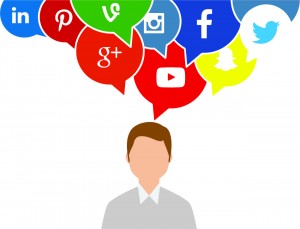
- The number of LinkedIn users in Pakistan is 06 million, which is around 03% of the country’s total population. Every 37th Pakistani is uses LinkedIn.
- Pakistan is the 13th biggest country in terms of users of Facebook.
- Pakistan is the 13 largest country in terms of highest relative growth of Facebook users.
- Pakistan is on 20th position among countries with most Snapchat users.
What do SM users say?
- Syed Muhammad Zaki, Quetta
SM is a wonderful addition to information technology in the modern-day world. The one who has a smartphone is a player in this domain. It’s like a deluge of information that is sweeping everyone away. However, it is a reality that if SM has some positive aspects, there are some negative ones too. The concept of freedom with responsibility that was the soul of the profession of journalism has become totally irrelevant to SM. Hence, it has become a double-edged sword a rash or an irresponsible use of which can prove fatal to the society. It is like a toy bomb in the hand of a child who plays with it due to its meretricious beauty but is unaware about the danger it carries. In print media, an editor had a key role to play. He was like a filter who allowed only the authentic information to pass on to the readers. In this context editor’s dustbin has a special status as it would eat up all the negativity and disinformation. However, in SM there is neither an editor nor his symbolic dustbin; ergo, no filtration of news. Although some states have formulated cyber laws, they are insufficient and toothless, to say it mildly. SM, which include platforms like Facebook, Twitter, Instagram, WhatsApp, and others, not only have overwhelming influence on the society; they are literally haunting it. Even a single tweet, a blog or a post has the power to give a new direction to the ongoing debates anytime.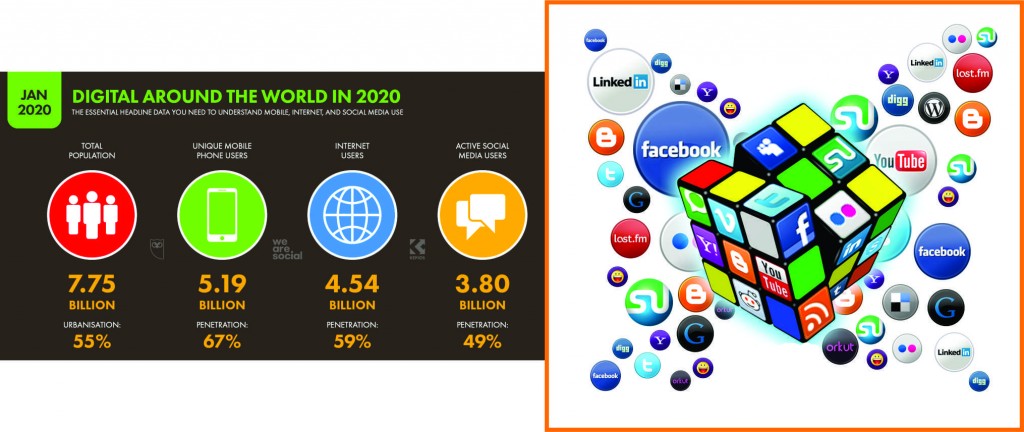
This is the medium that is not governed by rules and regulations. It is as if you are driving on a spacious road where there is no bump or a speed breaker other than self-control to make you stay within the limits. And, this breakneck speed often has catastrophic consequences. If used positively and responsibly as a medium to communicate and express one’s thoughts, SM can play a very constructive role; however, an unbridled use can have deleterious impacts on the society, and this is what we are seeing right before our eyes. In a society like ours that is already fragmented and divided on racial and sectarian basis, SM is like the festival of basant which people celebrate by flying different, colourful kites from their rooftops. If some people rejoice in cutting string of others’ kites, these very strings also slit throats of many, leaving their families grief-stricken and mourning. To sum it up, I would say that the use of SM warrants extreme care and responsible behaviour and the only way to do this is self-control.
- Mehboob Sarwar, Karachi
Like the rest of the world, there is both positive and negative use of SM in Pakistan; however, the former is dominant. Since the world has become a global village, liking for negativity has considerably declined, giving an edge to positivity. SM all over the world enjoys unbridled freedom as it is not regulated by an institution or organization. However, there should be a code of conduct or that of ethics in this regard. Although there are a number of cyber acts for social, moral and personal policing, they need to be reinforced and implemented in letter and spirit. Our religion does also profess to talk to others with politeness. We are free to use SM but we should do so responsibly and keeping in mind that we are Muslims and the citizens of a civilized Muslim state. The government, too, should allow the penetration of SM in the society but it must also ensure that laws are strictly implemented.
- Javeria Maqbool, Islamabad
Role of SM in Pakistan is mostly positive and constructive. Those who cannot spare time to read newspapers or watch television to keep themselves abreast of latest happening around them, resort to SM to meet their communication needs. Moreover, they can express their thoughts on a particular happening. However, as regards its freedom, it is maximum; as everyone, even a child, can instantly access the SM platforms to express his/her opinion anytime.
You can communicate not only through words but also through pictures and videos there. So, there should be a code of ethics for bringing its use in some limits. The government should define some limitations so as to thwart the spread of negativity and fake news. Training programmes should be devised to achieve his goal. It is also, on the other hand, the responsibility of the citizens that before making viral any piece of information, they should check its veracity and authenticity. People don’t like restrictions nowadays as they like to be free but freedom is beneficial only when there is the element of responsibility attached to it.
- Ghani-ur-Rehman, Dir Lower, KP
Since SM can be used by anyone anytime, therefore, it has both negative and positive aspects. Preventing the spread of coronavirus by staying updated on all the latest developments from Pakistan and around the world is the most conspicuous example of its constructive role. Nonetheless, I feel that in our country, the negative use of SM is far more than the positive one. Unfortunately, during the past 8-10 years, the negative use of SM has crossed all limits. Activists and paid trolls of various political parties openly indulge in abuse, spreading fake news and negativity about each other’s leadership, promoting self-concocted truths, and personal attacks on Facebook, Twitter, WhatsApp, Instagram and other SM platforms. This attitude is having deleterious impact on our social norms. SM platforms are used to spread fake news, rumour-mongering, sensationalism and deception. In addition, they are also the forum from where users try to promote racism, linguistic nationalism, sectarianism, religious hatred and to spread obscenity and profaneness, thus making the negative use more conspicuous than the positive one.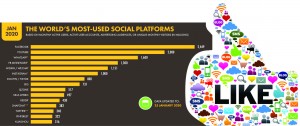
SM has an element of in-built freedom and there are no government authorities or institutions to regulate its use. There are three main viewpoints regarding the formulation of laws and their implementation thereupon: A school of thought does not, at all, subscribe to the idea of any rules and regulations. Those who favour this view opine that people will mentally mature and assimilate to the positive use as the times passes by. The second group proactively propounds the idea of regulating SM and formulating strictest of laws to bring it under control. Those believing in this are generally disparaged as conservatives and people of rigid minds. The third viewpoint, to which I also subscribe, is that SM should be free but within some limitations which should be imposed only to discourage negative use of SM. They say that the government should facilitate the use of SM but should also be, at the same time vigilant to stop its negative use.
- Arshad Hussain Jugnoo, Gilgit
SM have, no doubt, facilitated the people but an unhindered flow of information has made it virtually impossible to sift truth from lies. If we have a look at the nature of the use of SM in Pakistan, it is regrettably true that it has not only damaged the journalistic values and ethics but has made us so morally degraded that we don’t feel shame in stooping very low when we start character assassination of personalities that are, otherwise, considered noble. Even our political and religious parties don’t hesitate from indulging in such filthy tactics. Everyone is bent on projecting negativities instead of highlighting positive things of our society. So, in the light of these facts, we can say that the use of SM in Pakistan is overwhelmingly negative. 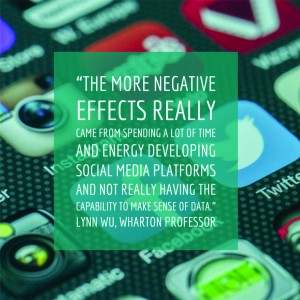 Although everyone has right to freedom of expression but it doesn’t, in any sense, mean that we start pointing fingers at others only to degrade, disparage and ridicule them. It only means to express your opinion on an issue keeping yourself in reasonable limits.
Although everyone has right to freedom of expression but it doesn’t, in any sense, mean that we start pointing fingers at others only to degrade, disparage and ridicule them. It only means to express your opinion on an issue keeping yourself in reasonable limits.
- Muhammad Farooq Bhatti
All the somewhat positive use of SM we see around us is inadvertent. A huge chunk of SM users in our country belongs to lower-middle and middle class. Most of such users log in to SM platforms just to watch video and hardly comes to the giving end. Those interested in making money from YouTube channels post videos on unimportant, petty issues, and some even resort to obscenity and vulgarity. Most user IDs on Facebook and Instagram are fake. In this way, users easily fall prey to the chicaneries of those having anti-society agenda because when they respond to such a post, they are inadvertently giving a wide dissemination to that. You can even say that even the debate on positive and negative use of SM is irrelevant to Pakistan. In our country, SM is not ‘free’ rather it is on a roller coaster. The freedom to use SM is enjoyed more by the companies or business enterprises that mint money by making use of the people. 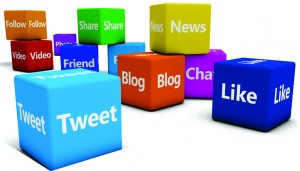 They make these apps to popularize them among the people and earn money even by using their private data, and, at the same time, they do not allow users to go against their interests. For example, SM websites like Facebook can, at any time, block your posts in the name of community guidelines that are devised just to suppress users’ right to freedom of expression. Facebook is under Indian and Israeli influence and to see this just post the name of Kashmiri hero Burhan Wani Sheikh Ahmed Yassin, the founder of Hamas, your post will be instantly deleted. My own personal account, where I have loads of personal data, pictures, etc., was blocked just because I opposed the inhuman lockdown in Kashmir, and despite repeated requests, it is still blocked. So, I would say that there must be a code of ethics for SM users which must also be strictly implemented by the government agencies. Particularly, institutions or enterprises must be allowed to open their accounts only with the government permission. Political and religious parties, sectarian pressure groups and other such organizations must not be allowed to run their SM accounts sans permission by the government. There should be a licence and an annual fee for them.
They make these apps to popularize them among the people and earn money even by using their private data, and, at the same time, they do not allow users to go against their interests. For example, SM websites like Facebook can, at any time, block your posts in the name of community guidelines that are devised just to suppress users’ right to freedom of expression. Facebook is under Indian and Israeli influence and to see this just post the name of Kashmiri hero Burhan Wani Sheikh Ahmed Yassin, the founder of Hamas, your post will be instantly deleted. My own personal account, where I have loads of personal data, pictures, etc., was blocked just because I opposed the inhuman lockdown in Kashmir, and despite repeated requests, it is still blocked. So, I would say that there must be a code of ethics for SM users which must also be strictly implemented by the government agencies. Particularly, institutions or enterprises must be allowed to open their accounts only with the government permission. Political and religious parties, sectarian pressure groups and other such organizations must not be allowed to run their SM accounts sans permission by the government. There should be a licence and an annual fee for them.
 Jahangir's World Times First Comprehensive Magazine for students/teachers of competitive exams and general readers as well.
Jahangir's World Times First Comprehensive Magazine for students/teachers of competitive exams and general readers as well.
